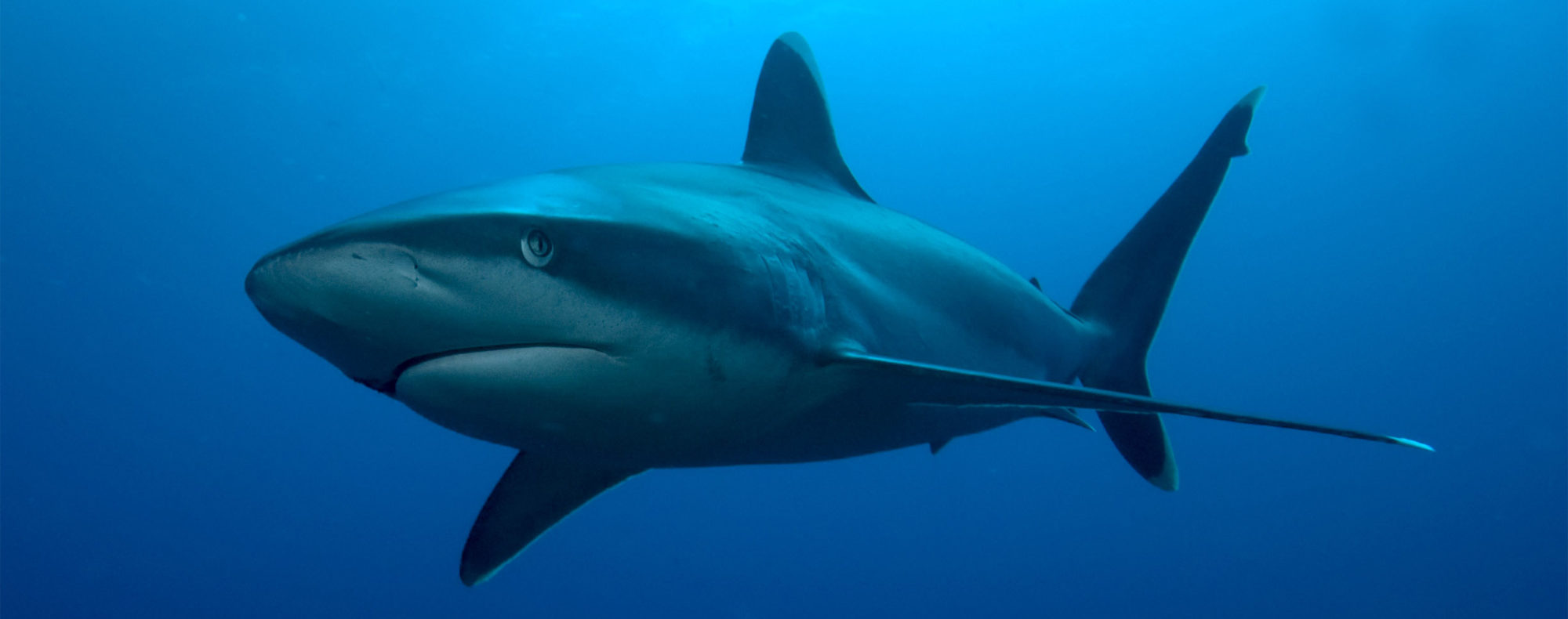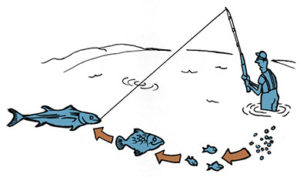Mythe N° 8: « No risk of ciguatera in Reunion» / « il n’y a pas de risque Ciguatera à la Réunion »
 FALSE: As a reminder, the decision of the Préfecture of La Reunion to prohibit trade in tiger shark’s and bull shark’s meat, enacted in 1999 and maintained and renewed in 2014, is motivated by the opinion of the ANSES (National Agency Health Safety of Food) highlighting the case of recurrent and fatal poisonings occurring in Madagascar after shark meat ingestion and the ability of some sharks to travel between the two islands (i.e. results of the CHARC study). Ciguatera exists at the Reunion island but to date, other species of fish such as barracuda, are concerned. Cases of poisoning following the consumption of such fish have taken place. This is precisely the reason why the flesh of sharks targeted by the program CAP REQUINS will never present the necessary food security guarantees for the marketing of sharks’ catches. Again, reports of studies on the subject and funded to the tune of several hundred thousand euros are inaccessible to the public. Why ?…
FALSE: As a reminder, the decision of the Préfecture of La Reunion to prohibit trade in tiger shark’s and bull shark’s meat, enacted in 1999 and maintained and renewed in 2014, is motivated by the opinion of the ANSES (National Agency Health Safety of Food) highlighting the case of recurrent and fatal poisonings occurring in Madagascar after shark meat ingestion and the ability of some sharks to travel between the two islands (i.e. results of the CHARC study). Ciguatera exists at the Reunion island but to date, other species of fish such as barracuda, are concerned. Cases of poisoning following the consumption of such fish have taken place. This is precisely the reason why the flesh of sharks targeted by the program CAP REQUINS will never present the necessary food security guarantees for the marketing of sharks’ catches. Again, reports of studies on the subject and funded to the tune of several hundred thousand euros are inaccessible to the public. Why ?…
 FAUX : Pour rappel, la décision de la préfecture de La Réunion d’interdire la commercialisation des requins-tigres et requins-bouledogues, promulguée en 1999 et maintenue et renouvelée en 2014, est motivée par l’avis de l’ANSES (Agence nationale de sécurité sanitaire de l’alimentation) mettant en avant les cas d’intoxications récurrents et mortels ayant eu lieu à Madagascar après ingestion de chair de requins et par la capacité de certains requins à voyager entre les deux îles (cf. résultats de l’étude CHARC). La ciguatera existe bien à la Réunion mais à ce jour, ce sont d’autres espèces de poissons, comme le barracuda, qui sont concernées. Des cas d’empoisonnement suite à la consommation de tels poissons ont effectivement eu lieu. Raison pour laquelle la chair des requins visés par le programme CAP REQUINS ne présentera jamais les garanties de sécurité alimentaire nécessaires à la commercialisation des prises. Là encore, les rapports des études menées sur le sujet et financées à hauteur de plusieurs centaines de milliers d’euros restent inaccessibles au public. Pourquoi ?…
FAUX : Pour rappel, la décision de la préfecture de La Réunion d’interdire la commercialisation des requins-tigres et requins-bouledogues, promulguée en 1999 et maintenue et renouvelée en 2014, est motivée par l’avis de l’ANSES (Agence nationale de sécurité sanitaire de l’alimentation) mettant en avant les cas d’intoxications récurrents et mortels ayant eu lieu à Madagascar après ingestion de chair de requins et par la capacité de certains requins à voyager entre les deux îles (cf. résultats de l’étude CHARC). La ciguatera existe bien à la Réunion mais à ce jour, ce sont d’autres espèces de poissons, comme le barracuda, qui sont concernées. Des cas d’empoisonnement suite à la consommation de tels poissons ont effectivement eu lieu. Raison pour laquelle la chair des requins visés par le programme CAP REQUINS ne présentera jamais les garanties de sécurité alimentaire nécessaires à la commercialisation des prises. Là encore, les rapports des études menées sur le sujet et financées à hauteur de plusieurs centaines de milliers d’euros restent inaccessibles au public. Pourquoi ?…
Transmission de la ciguatera à l’humain:


Une réflexion sur “ Mythe N° 8: « No risk of ciguatera in Reunion» / « il n’y a pas de risque Ciguatera à la Réunion » ”
Les commentaires sont fermés.